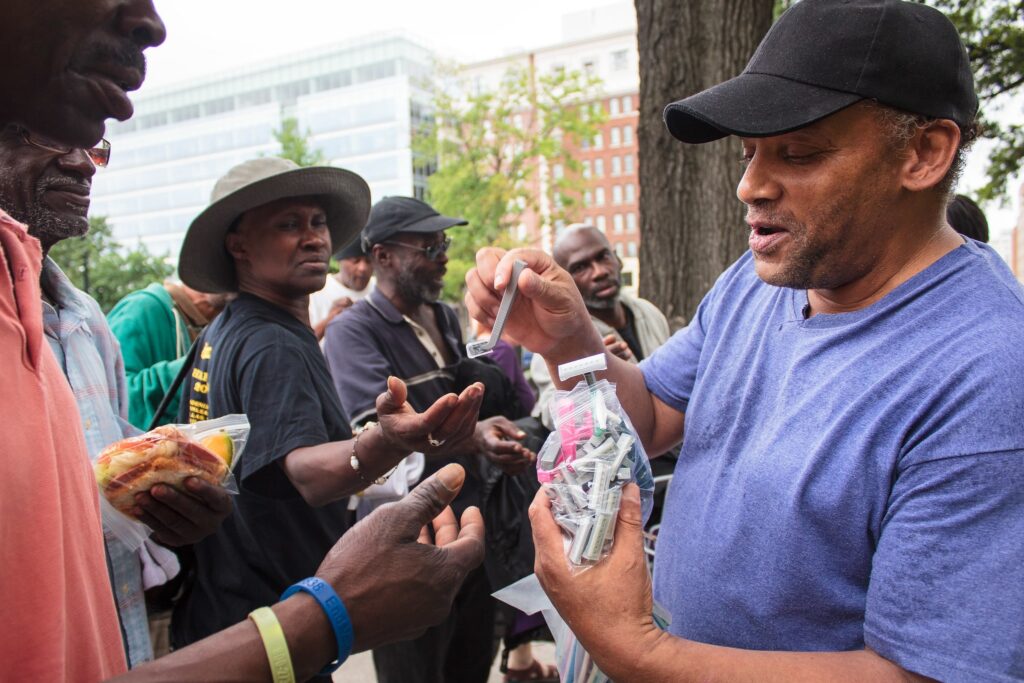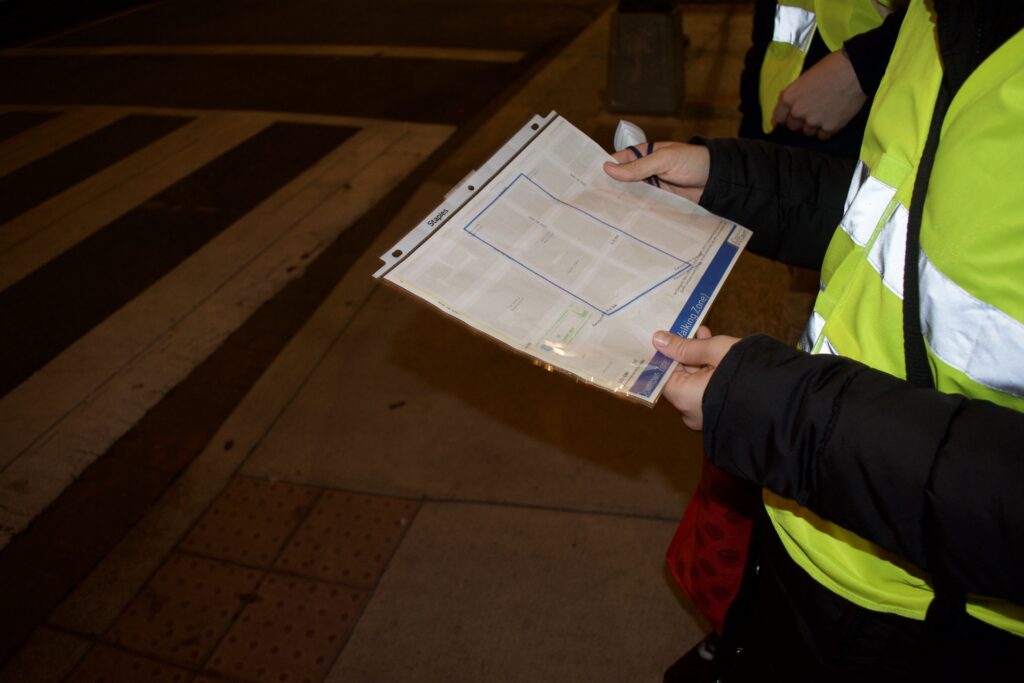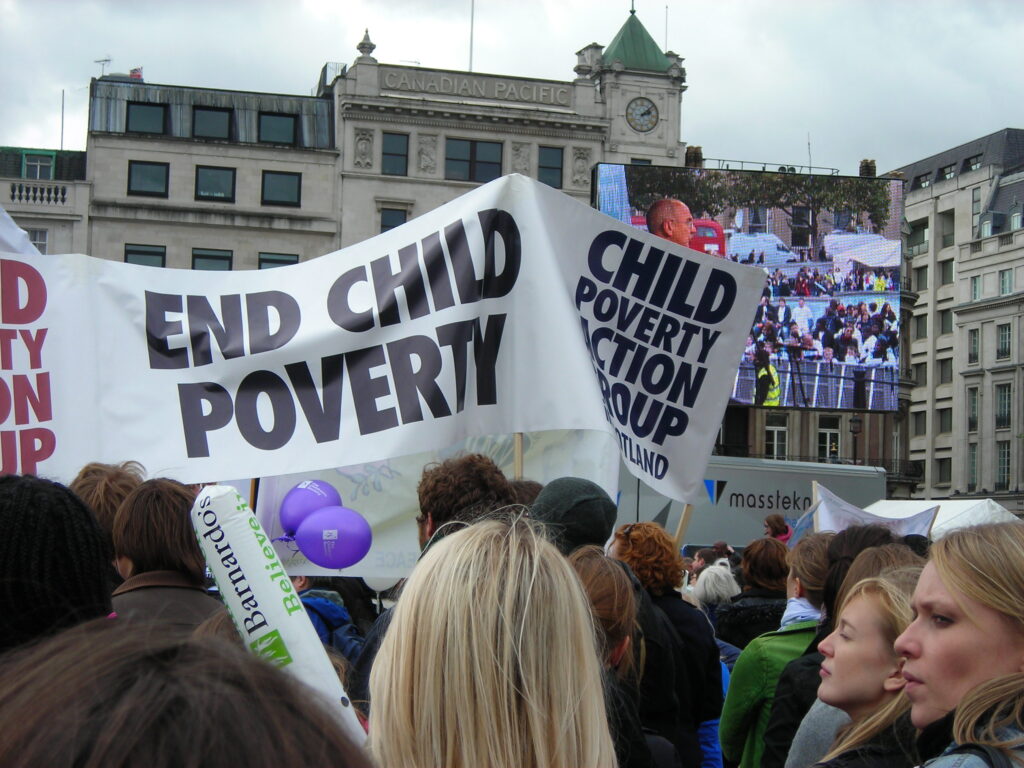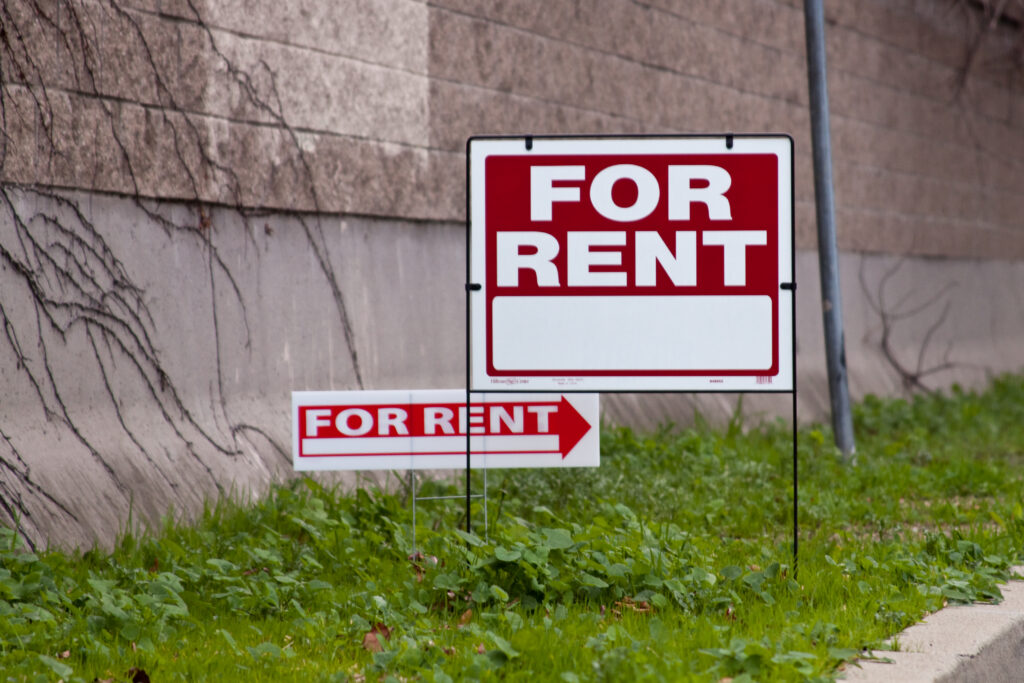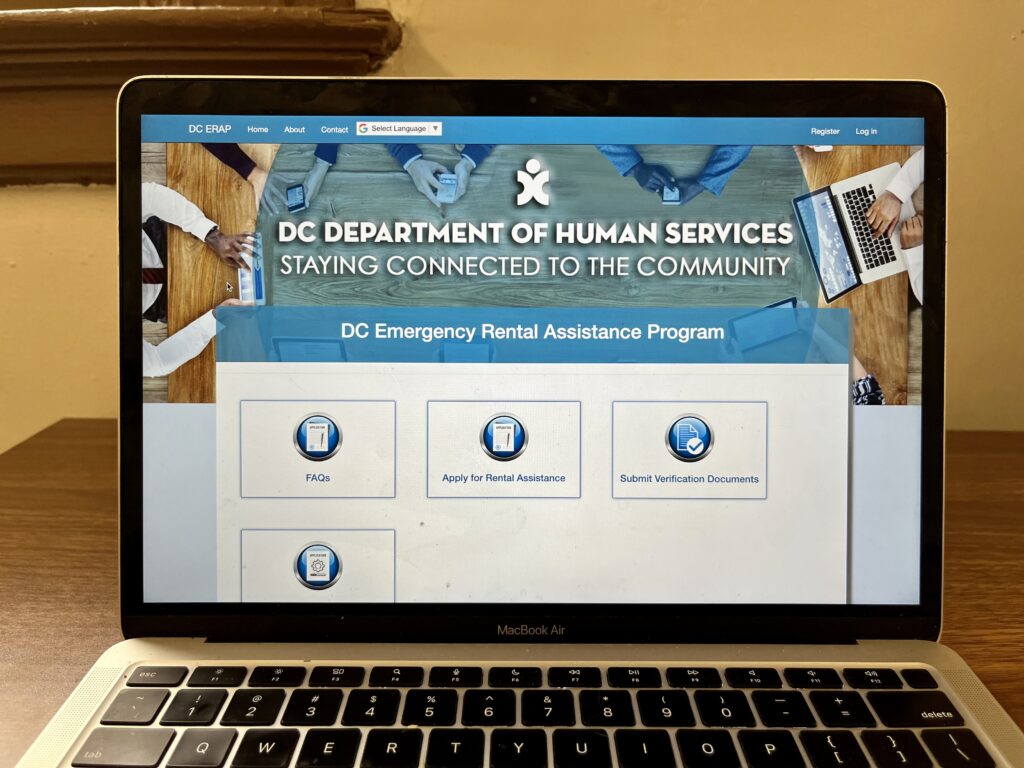This article was featured in the June 10 digital-only edition of Street Sense. Until it is safe to resume person-to-person sales, you’ll always be able to find the current digital-only edition at streetsensemedia.org/Digital Thank you for reading! Please continue to support our vendors through our mobile app (streetsensemedia.org/App).
M
ayor Muriel Bowser’s proposed budget for fiscal year 2021 eliminates $2.1 million in one-time funding for street outreach allocated in fiscal year 2020 and advocates are now worried about the possible impacts, given the ongoing pandemic.
According to Jesse Rabinowitz, advocacy and campaign manager for Miriam’s Kitchen, the $2.1 million one-time funding allowed D.C. to create a comprehensive street outreach initiative that was housing-focused and connected all eight wards to services they needed.
“I think it was a large step in the right direction and set D.C. on track to really meet the needs of unsheltered individuals living on the street, from an outreach perspective,” Rabinowitz said. “Certainly, a $2.1 million reduction would be a significant decrease that would limit our ability to get people’s basic needs met.”
The cut decreases funding for street outreach by about 57%, just as the COVID-19 pandemic makes those services more necessary than ever. Advocates foresee a rise in homelessness and a greater need for street outreach in light of D.C.’s current economic situation due to COVID-19. According to Community Solutions, a nonprofit that works to end homelessness through data-driven solutions, homelessness is projected to increase by 40 to 45% nationwide, and 40% of people experiencing homelessness are at a high risk of contracting the virus.
Kate Coventry, a senior policy analyst at the D.C. Fiscal Policy Institute and homelessness advocate, said the weakest part of the proposed budget is cuts to homeless street outreach.
“Given COVID-19, there are some people who will not come inside because they do not want to be exposed to the disease,” she said. “So in many ways, street outreach is more important now.”
According to Rabinowitz, Miriam’s Kitchen’s outreach has increasingly used FY2020’s funding to focus on COVID-19 response and connecting people to housing. “Right now, outreach is focused on life-saving needs and harm reduction, connecting people to healthcare. A big need is getting people food and water, especially because a lot of normal services are closed,” Rabinowitz said.
Funding for street outreach was at risk of being cut for the fiscal year 2020 budget, too. Ward 1 Councilmember Brianne Nadeau, chair of the Committee on Human Services, explained that when the council learned outreach programs under the Department of Behavioral Health were getting cut in FY2020, the committee established a separate outreach program under the Department of Human Services that focused on homeless residents in 2019.
“The way I was able to do that in last year’s budget was by cutting a tax break for high-tech companies,” Nadeau said. “That cut also funded a number of other priorities like additional permanent supportive housing. Now, these programs are run by some of our nonprofit partners across the city.”
In the D.C. Department of Human Services’ proposed Priorities and Budget Report for 2021, DHS hopes to reduce spending in the current fiscal year and maximize resources for those affected by COVID-19. DHS is predicted to lose revenue due to COVID-19 and as a result will have to cut programs.
“The mayor also, in this budget, created a new allocation for the qualified high-tech companies that I had actually cut last year,” Nadeau said. “She set aside $1.9 million for them in this budget, so that’s one of the first places we’re going to be looking for funding to replace it, like we did last year, if we can’t find the money.”
Another proposed solution to fill the gap in street outreach funding is a partnership between the DBH and DHS, but Nadeau noted there are drawbacks to combining both agencies.
Nadeau said one concern is that homeless outreach will not be DBH’s number one priority because it is not their mission. “Also, we don’t have answers yet on whether or not the funding that they have available through the federal government actually allows them to work with people who don’t have a behavioral health diagnosis,” Nadeau said.
On May 22, advocates requested that the council “invest an additional $66 million to end chronic homelessness, to fully fund homeless street outreach, and restore cuts and increase funding to Project Reconnect” at the Committee on Human Services budget hearing.
Rabinowitz said that $66 million would end chronic homelessness for 1,404 individuals, 206 families, and prevent more than 2,000 individuals from entering poverty in D.C.
“We are hopeful that the D.C. Council will invest to fund that gap of $2.1 million to bring it back up to the FY20 number,” Rabinowitz said. “We are actively lobbying the council for that.”
